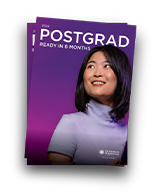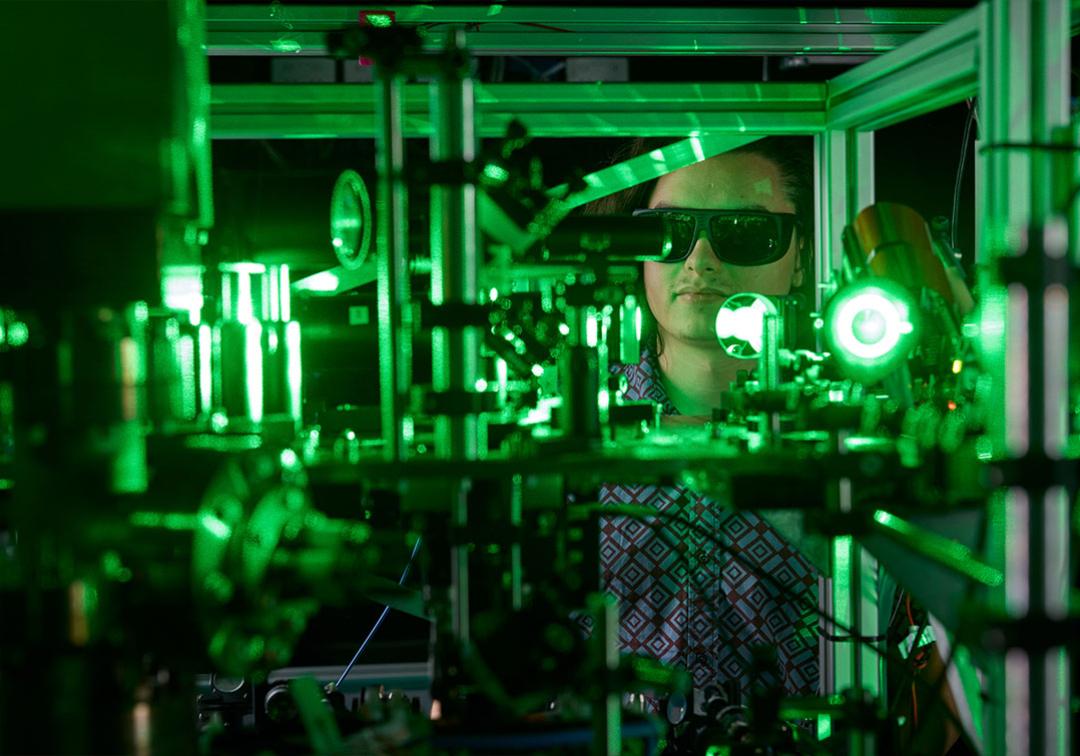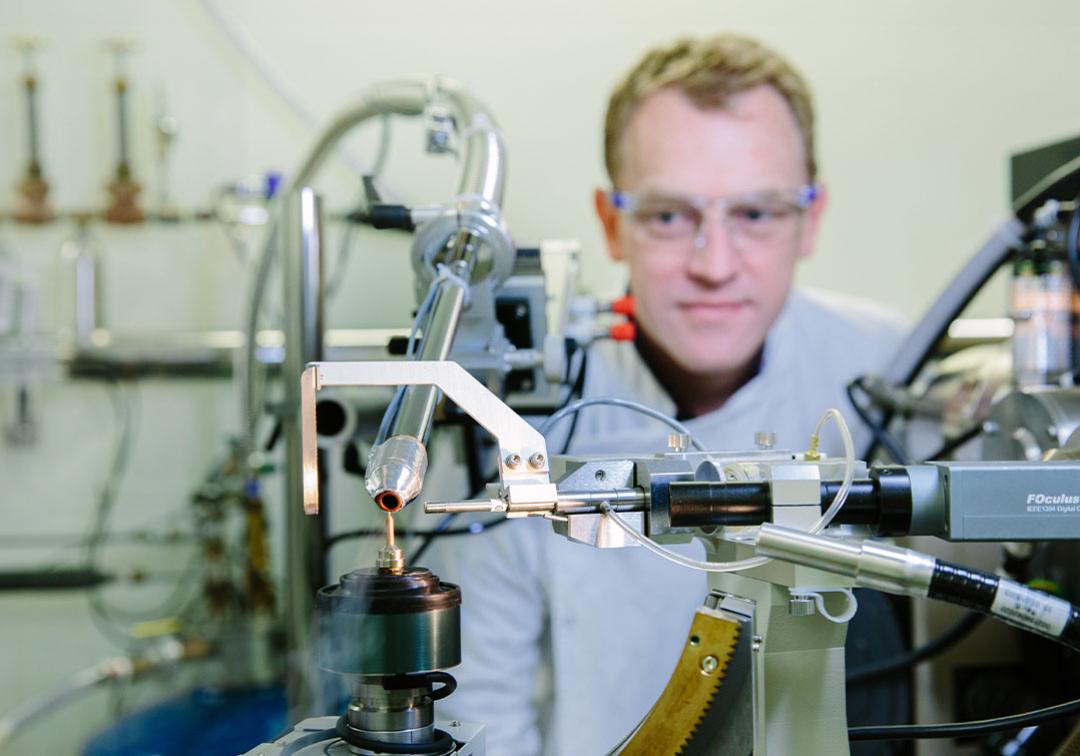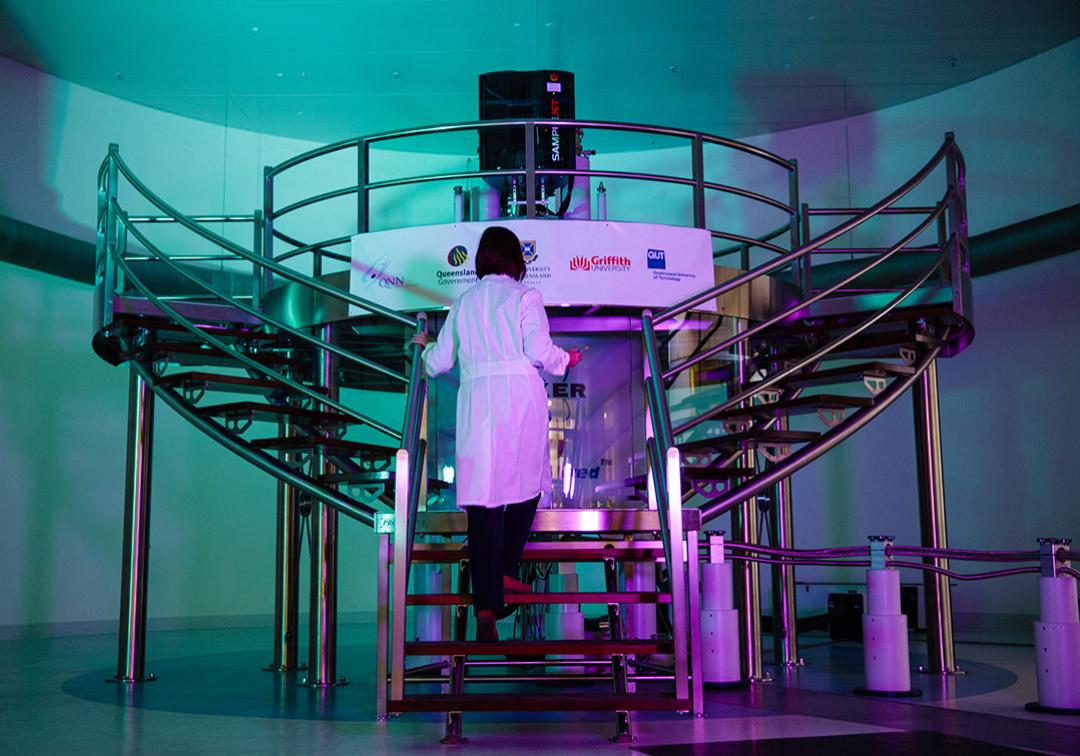
Graduate Diploma in Science
Overview
Extend your knowledge in your chosen field of mathematics, physics or statistics and capitalise on the growing demand for high-level scientific expertise.
The Graduate Diploma in Science is designed for graduates who have majored in mathematics, physics or statistics and wish to extend their knowledge in their chosen field.
For your one year of full-time (or part-time equivalent) studies, you'll select from around 30 courses, providing you with a high level of specialised knowledge together with valuable skills associated with your selected area of study.
UQ's Science program prepares you for a highly rewarding career in a variety of roles. Many of our Mathematics graduates study higher degrees and go on to research positions at universities and other major research institutions. Our Physics graduates gain robust, high-level analytical and problem-solving skills that are widely applicable and highly valued by a diverse range of employers. Equally, our Statistics graduates are in high demand in business, industry, research and government.
Program highlights
- Study at UQ's Faculty of Science, internationally renowned for excellence and impact in teaching and research.
- Benefit from UQ's long-standing links with industry and government partners.
- Apply your gained knowledge through a range of collaborations, including research projects externally and within our research centres, commercialisation ventures, and industry placements or internships.
Fields of study
Tailor your studies to suit your goals. This program offers these options:
- Applied Mathematics
- Mathematics
- Physics
- Statistics
How you'll learn
Your learning experiences are designed to best suit the learning outcomes of the courses you choose.
- Lectures
- Tutorials
- Laboratory work
- Workshops
What you'll study
At UQ, degrees are called 'programs' and subjects are called 'courses'. Here's a sample of the courses you could study in this program:
- General Relativity
- Mathematical Biology
- Quantum Physics
- Statistical Analysis of Genetic Data
Career possibilities
Postgraduate study can take you anywhere. Depending on which field you choose, here are some of the careers you could be on your way to:
- Banking analyst
- Investment banker
- Finance analyst
- Computing specialist
- Financial product developer
- Asset and liability manager
- Risk assessor
Graduate salary
Science and mathematics (postgraduate)
compared.edu.au
Events
See all eventsStories
See all stories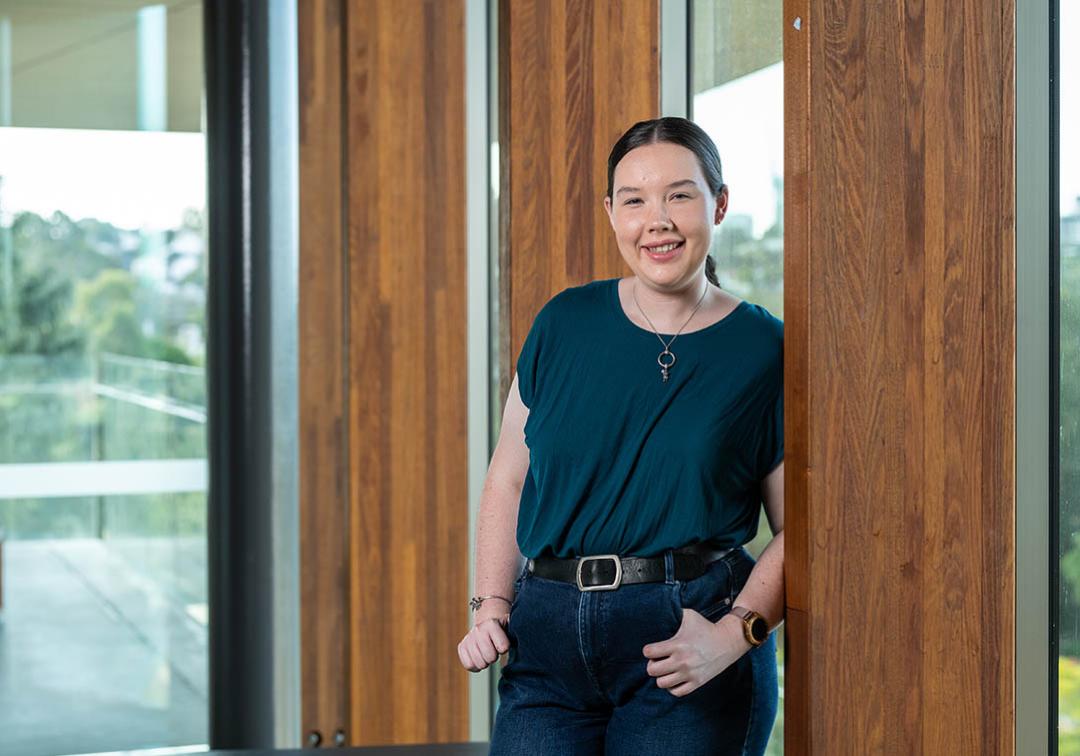
UQ people
Fighting fire with science: new tech to protect firefighters

UQ people
Science skills + business savvy = biotech success
Stories
See all stories
UQ people
Fighting fire with science: new tech to protect firefighters
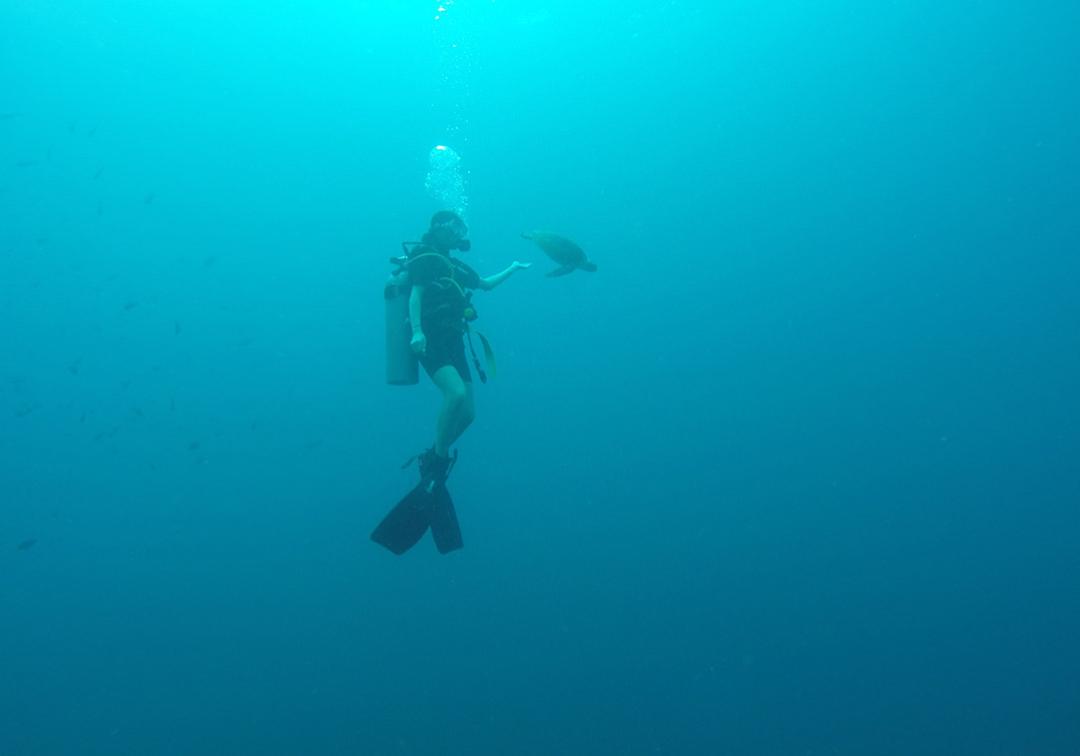
Careers
What jobs can you do with a Bachelor of Science?
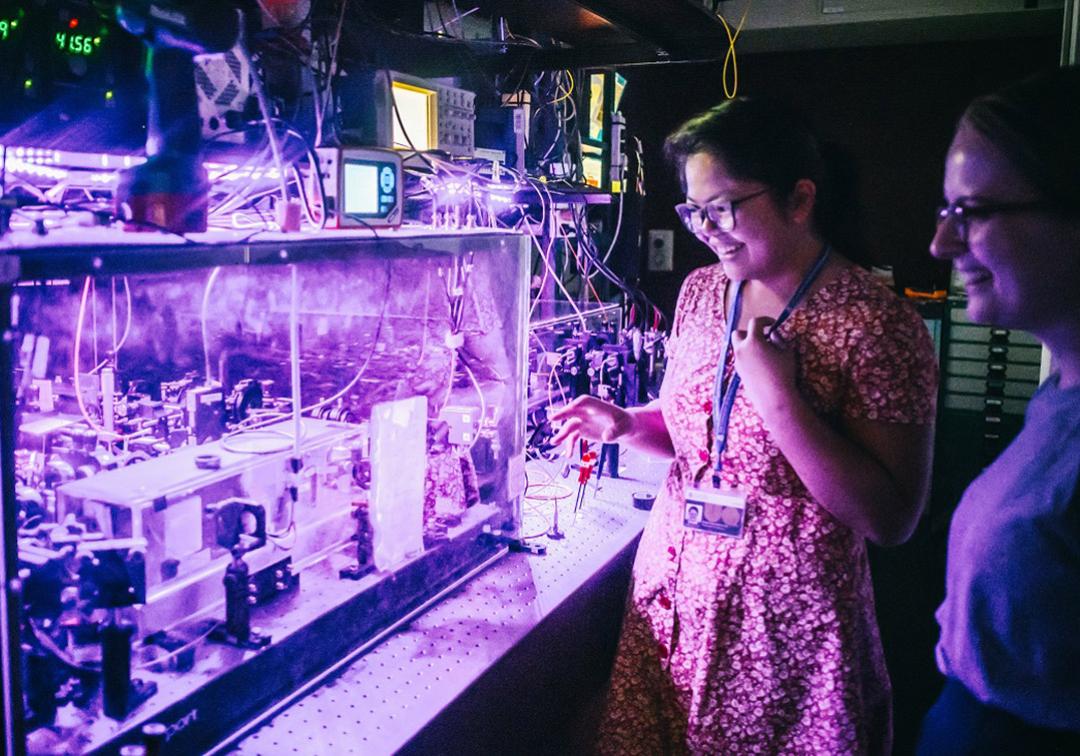
Careers
What can you do with a quantum technology degree?
Entry requirements
Entry requirements
To be eligible for entry, you'll need:
- a bachelor's degree (or equivalent) in any discipline with first-year university-level mathematics (including calculus, multi-variable calculus, linear algebra, and ordinary differential equations), or
- 5 years full-time equivalent, relevant work experience (see below).
You must have a grade point average (GPA) of 4.5 on a 7-point scale in your previous qualification.
For the Physics field of study:
- a bachelor's degree (or equivalent) in any discipline with first-year, university-level physics (including mechanics, thermal physics, electromagnetism, and modern physics), and first-year university-level mathematics (including calculus, multi-variable calculus, linear algebra, and ordinary differential equations), or
- 5 years full-time equivalent, relevant work experience (see below).
You must have a grade point average (GPA) of 4.5 on a 7-point scale in your previous qualification.
Relevant work experience includes work in a related discipline, including data science, engineering or information technology.An assessment is made of the applicant's background covering completion of, and performance in, relevant courses in their prior institution which provide the relevant pre-requisite knowledge. Students can provide further evidence in the form of a CV of their background.Final approval by the program coordinator.
- a bachelor's degree (or equivalent) in any discipline with first-year university-level mathematics (including calculus, multi-variable calculus, linear algebra, and ordinary differential equations), or
- 5 years full-time equivalent, relevant work experience (see below).
You must have a grade point average (GPA) of 4.5 on a 7-point scale in your previous qualification.
For the Physics field of study:
- a bachelor's degree (or equivalent) in any discipline with first-year, university-level physics (including mechanics, thermal physics, electromagnetism, and modern physics), and first-year university-level mathematics (including calculus, multi-variable calculus, linear algebra, and ordinary differential equations), or
- 5 years full-time equivalent, relevant work experience (see below).
You must have a grade point average (GPA) of 4.5 on a 7-point scale in your previous qualification.
Relevant work experience includes work in a related discipline, including data science, engineering or information technology.An assessment is made of the applicant's background covering completion of, and performance in, relevant courses in their prior institution which provide the relevant pre-requisite knowledge. Students can provide further evidence in the form of a CV of their background.Final approval by the program coordinator.
Related programs
Depending on your previous qualifications and current goals, you might want to consider
one of these related programs:
English language requirements
IELTS overall 6.5; reading 6; writing 6; speaking 6; listening 6. For other English Language Proficiency Tests and Scores approved for UQ
TOEFL iBT (including Paper Edition) - Overall 87, listening 19, reading 19, writing 21 and speaking 19.
PTE Academic - Overall Score of 64 and 60 in all sub bands.
BE - A minimum overall grade of 4 plus a minimum grade of C in all macro skills.
CES - Overall 176 and 169 in all sub bands.
OET is not accepted.
There are other ways to meet the English language requirements. For some programs, additional conditions apply.
Student visas
International students who are accepted into full-time study in the Graduate Diploma in Science are eligible to apply for an Australian student visa (subclass 500).
There are a number of requirements you must satisfy before a visa is granted, including the Genuine Student (GS) requirement.
Fields of study
Fields of study
Tailor your studies to suit your goals. This program offers these options:
Mathematical modelling is used across a wide range of problems. These include the design of:
- networks for improved efficiency in traffic flow
- climate models used to predict weather events, and
- models that enable scientists to better understand infectious diseases.
Study applied mathematics and learn how advanced mathematical methods are used to develop practical solutions in a variety of real-world contexts.
Many of our mathematics graduates study higher degrees and go on to research positions at universities and other major research institutions.
Mathematics enables a concise language used for rigorous explorations of problems and a heightened predictive power.
You’ll have the opportunity to study modern applications of mathematics in areas such as coding and cryptology, bioinformatics, mathematical physics, mathematical ecology, computational science and visualisation, and nonlinear differential equations.
Gain advanced knowledge in areas such as quantum physics and astrophysics using experimental, theoretical and computational methods.
This field is designed for students who have a substantial background in physics at the undergraduate level.
Statisticians contribute to scientific inquiry by applying their mathematical knowledge to the design of surveys and experiments, collection, processing, and analysis of data and interpretation of the results.
Gain the theory and practical experience in the use of popular statistical and data analysis packages, as well as applied and theoretical statistics and probability theory. You will develop advanced skills in modern statistics so you can graduate ready to embark on a career as a professional statistician.
Fields of study
Tailor your studies to suit your goals. This program offers these options:
Mathematical modelling is used across a wide range of problems. These include the design of:
- networks for improved efficiency in traffic flow
- climate models used to predict weather events, and
- models that enable scientists to better understand infectious diseases.
Study applied mathematics and learn how advanced mathematical methods are used to develop practical solutions in a variety of real-world contexts.
Many of our mathematics graduates study higher degrees and go on to research positions at universities and other major research institutions.
Mathematics enables a concise language used for rigorous explorations of problems and a heightened predictive power.
You’ll have the opportunity to study modern applications of mathematics in areas such as coding and cryptology, bioinformatics, mathematical physics, mathematical ecology, computational science and visualisation, and nonlinear differential equations.
Gain advanced knowledge in areas such as quantum physics and astrophysics using experimental, theoretical and computational methods.
This field is designed for students who have a substantial background in physics at the undergraduate level.
Statisticians contribute to scientific inquiry by applying their mathematical knowledge to the design of surveys and experiments, collection, processing, and analysis of data and interpretation of the results.
Gain the theory and practical experience in the use of popular statistical and data analysis packages, as well as applied and theoretical statistics and probability theory. You will develop advanced skills in modern statistics so you can graduate ready to embark on a career as a professional statistician.
Fees and Scholarships
Indicative annual fee
Approximate yearly cost of tuition (16 units). Your fees will vary according to your selected courses and study load. Fees are reviewed each year and may increase.
$6,080
2024
$6,080
2024
Approximate yearly cost of full-time tuition (16 units). Your fees will vary according to your study load. Fees are reviewed each year and may increase.
AUD $51,200
2024
AUD $51,200
2024
Additional costs
- Courses that include a field trip component may incur additional costs to cover transport, accommodation and food.
Government assistance
Financial aid
As an international student, you might be eligible for financial aid – either from your home country, or from the Australian Government.
HECS-HELP
Domestic places in the Graduate Diploma in Science are Commonwealth Supported. This means the cost of your education is shared between you and the Australian Government.
Instead of tuition fees, Commonwealth Supported students pay what are called student contribution amounts.
HECS-HELP is an Australian Government loan scheme to assist eligible students with the cost of their student contribution amounts.
Centrelink support
The Australian Government offers a number of income-support payments to eligible Australian university students.
Scholarships
You may be eligible for more than 100 scholarships, including:
How to apply
Applying online
All international applications should be submitted to UQ. If you prefer, you can use an approved UQ agent in your country.
The program code for the Graduate Diploma in Science is 5240.
Find out more about applying for postgraduate coursework study
Applying online
All domestic applications should be submitted to UQ.
The program code for the Graduate Diploma in Science is 5240.
Find out more about applying for postgraduate coursework study
Important dates
The closing date for this program is:
- To commence study in semester 2 - May 31 of the year of commencement.
- To commence study in semester 1 - November 30 of the previous year.
To learn more about UQ dates, including semester start dates, view the Academic Calendar.
Important dates
The closing date for this program is:
- To commence study in Semester 1 - January 31 of the year of commencement.
- To commence study in Semester 2 - June 30 of the year of commencement.
To learn more about UQ dates, including semester start dates, view the Academic Calendar.
Aboriginal and Torres Strait Islander applicants
For support with applying – or if you have any questions about university life – get in touch with our Aboriginal and Torres Strait Islander Studies Unit.
Explore other programs
Express yourself. And your interest.
They say choosing a degree is hard, which is why we've made it easy. Register your interest and we'll send you everything you need to know about applying to UQ.

